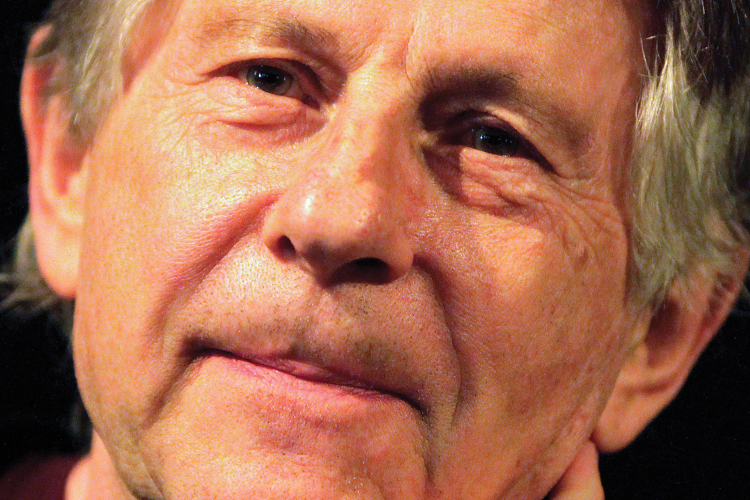CANNES, France — The French love affair with Roman Polanski simply won’t stop. With the 76-year-old Oscar-winning director and convicted sex offender facing impending extradition from Switzerland to Los Angeles — there to face a highly uncertain sentencing — a group of leading French filmmakers and intellectuals have launched a new counteroffensive, timed to coincide with global media coverage of the Cannes Film Festival. A petition signed by legendary directors Jean-Luc Godard and Agnès Varda, among numerous others, urges Swiss authorities to reject extradition and essentially tells them not to believe anything the Americans say about Polanski and his case.
According to a press release issued Wednesday by the Académie des Beaux-Arts, a leading French cultural institution, Polanski is showing “signs of grave depression,” which might not be surprising. This ailment, the academy’s release went on, had an obvious remedy: the filmmaker’s “rapid liberation” from house arrest at his villa in Gstaad, Switzerland. “Since the sentence initially expected [for Polanski’s 1977 offense] has in every possible sense been served for more than 30 years, we cannot see why the demand for his extradition continues.”
Also on Wednesday, the magazine La Règle du Jeu (Rules of the Game) published the pro-Polanski petition signed by Godard, Varda, Bertrand Tavernier, Olivier Assayas, actor-director Mathieu Amalric and six other prominent filmmakers who are here at Cannes this week. (Two of the 11 are female: Varda and young French director Katell Quillévéré.) Like the Beaux-Arts press release, this petition focuses on legal issues surrounding Polanski’s extradition case and possible sentencing, and not at all on his original offense. This essential mistrust of the American judicial system — and perhaps the entire American social climate — is the central issue that divides European and American opinion on the Polanski matter.
“The undersigned have learned with astonishment of new information brought to our attention by Roman Polanski,” the petition begins. Citing Polanski’s own public statement published by La Règle du Jeu on May 2, the petition goes on to discuss former Los Angeles District Attorney Roger Gunson’s February testimony to the effect that “Roman Polanski had served, 33 years ago in the penitentiary at Chino, the entirety of the sentence decided by the judge at the time.” This “essential piece,” the petitioners write, “has been strangely cared for on the scales of American justice.”
Here comes the big finish: “Conscious of how much this festival … owes to the great auteur of ‘The Pianist,’ conscious, also, of some basic rights such as the impossibility of judging and condemning a man twice for the same offense, conscious, in the end, that the demand for extradition expressed by the United States is based on a lie, we appeal to the Swiss authorities and urge them not to believe the word of Governor Schwarzenegger and his prosecutors.”
It’s a bravura performance: No jurisdiction that would actually elect Arnold Schwarzenegger can presume to judge an artist of Roman Polanski’s greatness! Now, the facts about exactly what deals were made and broken at the time Polanski fled to France in 1978 are by no means clear. Depending on how you interpret them, he may indeed have a viable legal case for receiving a minimal or symbolic sentence. But this week’s publicity offensive in the European media, which has included absolutely no discussion of Polanski’s original crime, is about something larger than that. It’s about the enduring sense on this side of the Atlantic that America, even in the Obama era, remains a land of philistine, puritanical barbarity.
Much of the pro-Polanski passion has been stirred up by journalist and philosopher Bernard-Henri Lévy, who publishes La Règle du Jeu and has campaigned vigorously for the director’s release. It’s logical to conclude that Lévy played a leading role in crafting the filmmakers’ petition, and may indeed be its real author. Lévy is a prominent public intellectual with no precise American parallel, so famous here he is often simply called “BHL.” (If you took Bill O’Reilly and gave him Harold Bloom’s education, you might get Lévy.) He’s no left-winger and no knee-jerk anti-American; his controversial positions in recent years have included supporting the Iraq war and favoring laws to limit the public role of Islam in European life. But Lévy embraces the traditional, nationalist conception of France as the home of reason and human rights. He has evidently concluded that sending Polanski back to L.A. is the moral equivalent of shipping Chinese or Iranian political dissidents back home to face the firing squad.


